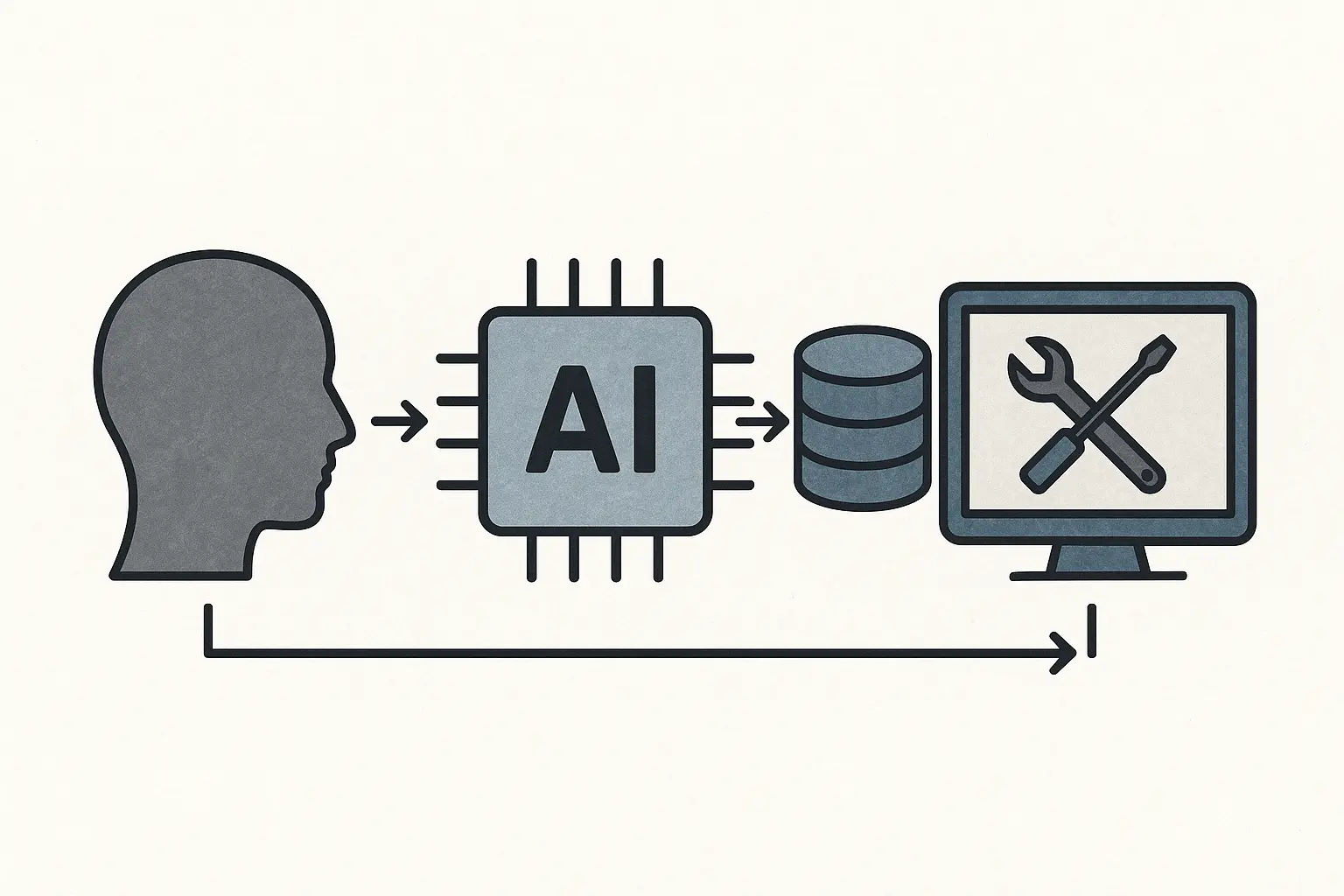AI Agents: The Future of Autonomous Work

Imagine a world where work gets done — without you lifting a finger. Emails are responded to, reports are generated, meetings are scheduled, and even code is written — all by your personal AI assistant. No, this isn't science fiction anymore. Welcome to the world of AI agents.
What Are AI Agents, Exactly?
To put it simply, AI agents are autonomous programs that can perceive, decide, and act — much like humans, but with data and logic. They don’t just follow pre-set instructions; they can analyze a goal, figure out the steps, and execute those steps independently.
Think of them as a cross between Siri, ChatGPT, and a virtual intern who never sleeps, never gets tired, and learns quickly
While basic chatbots follow simple rules, AI agents can reason, adapt, and improve with experience. ’re capable of multi-step thinking, using tools like search engines, APIs, or even writing code to solve a task.
How Are They Different From Traditional AI?
We’ve had AI for years — from recommendation engines on Netflix to facial recognition on smartphones. But these systems are often narrow and reactive. They wait for an input and give an output.
AI agents are different. They are proactive. Given a task like "Plan my product launch," a smart agent might:
- Search market trends,
- Create a timeline,
- Draft marketing copy,
- Schedule meetings with designers and developers,
- Monitor progress.
All this with little to no human input.
Examples of AI Agents in Action
Let’s look at how these agents are already working behind the scenes:
- Devin by Cognition AI: Devin is being called the world’s first fully autonomous AI software engineer. Give it a GitHub repo and a task like "fix bugs" or "add a login page," and it figures out how to do it — writing, testing, and deploying code autonomously.
- AutoGPT / BabyAGI: These are open-source AI agents that break big goals into smaller tasks and solve them sequentially. They use ChatGPT or similar models but chain prompts together dynamically — like how a human would plan and execute a complex task.
- Personal Productivity Agents:Startups like HyperWrite, Lindy, or Magai are building digital assistants that go beyond typing suggestions. These agents can write emails, book meetings, summarize documents, and even hold entire conversations — acting like full-on AI employees.

Jobs Most Affected
Let’s be honest — some jobs are about to change drastically, if not disappear altogether. Here are some areas where AI agents are already making a dent:
- Software Development :
- Write clean code,
- Debug errors,
- Test applications,
- Deploy on cloud services.
Developers may shift from “writing” code to reviewing or supervising code written by AI.
- Digital Marketing
From writing ad copy to scheduling posts and analyzing campaigns, marketing agents can automate much of what used to take an entire team.
- Customer Support
24/7 agents that can resolve support tickets, initiate refunds, and escalate issues only when needed — cutting down customer service costs massively.
- Project Management
Agents can track tasks, send reminders, allocate resources, and monitor deadlines — acting like tireless coordinators.
- Virtual Assistance
Email filtering, calendar management, research tasks — all handled seamlessly. Why hire a human VA when you can have one that never takes breaks?
Challenges and Limitations
They still face hallucinations, limited memory, security risks, and need proper supervision. But they’re improving fast.
The Human-AI Collaboration
Instead of replacing us, AI agents will work with us. Humans will manage and guide, while AI agents handle execution. It's the rise of the one-person enterprise.
- You’re the manager, and your AI agent is your team.
- You set high-level goals.
- The agent executes details.
- You supervise, edit, or redirect when needed.
Ethical Considerations
- Job Displacement
Will millions of people lose their jobs to AI agents? Possibly. But many argue that new types of work will also emerge — AI trainer, prompt engineer, AI ethicist, system architect, etc
- Bias and Fairness
If an agent is handling financial decisions or HR processes, how do we ensure it’s unbiased and fair?
- Privacy and Security
Agents have access to emails, messages, databases. What happens if one gets compromised? Security must be top priority.
- Accountability
If an AI agent makes a mistake (say, books a wrong flight or crashes a server), who is responsible — the user or the developer?
Preparing for the Future
- Experiment with tools like ChatGPT, AutoGPT
- Learn prompt engineering
- Adapt and upskill
- Follow AI developments closely
Where Are We Headed?
We’re at the beginning of a massive shift in how work happens.
In 5–10 years, AI agents might become:
- Mandatory tools in every digital workspace.
- Personalized experts — doctors, lawyers, coaches — tailored to each individual.
- Collaborative agents — able to work in teams, chat with each other, and handle projects end-to-end.
What Should You Do Today?
If you're reading this, you're already ahead of the curve. But here's how to really prepare for the age of AI agents:
- ✅ Start experimenting Try tools like AutoGPT, ChatGPT with custom instructions, or Devin (if available).
- ✅ Upskill in prompt engineering How you ask is everything. Learning to instruct agents effectively is a superpower.
- ✅ Adapt your role Think: What parts of your job can be automated? Focus your energy on strategy, creativity, and oversight.
- ✅ Stay informed Follow AI news, join communities, and attend events. The world is moving fast — blink and you’ll miss a big update.
Conclusion: AI agents are not just tools; they’re becoming collaborators. They’ll reshape work, redefine productivity, and unlock new possibilities — if we’re ready to embrace them.